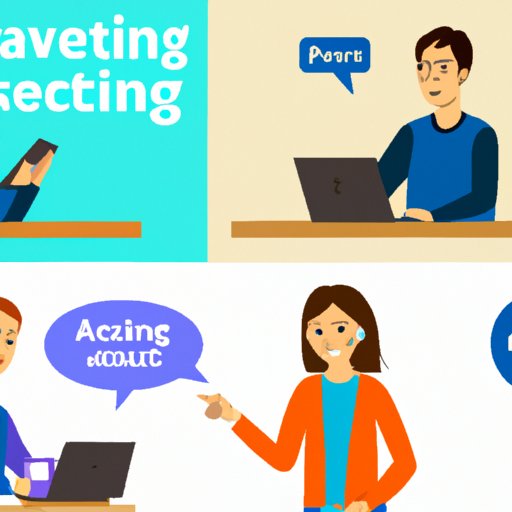
How to Listen: The Art of Active Listening
Active listening is the process of consciously paying attention to and truly understanding what someone is saying. While it may seem like a simple task, active listening is a skill that requires practice and dedication. By mastering the art of active listening, you can improve your personal relationships, enhance your communication skills, and experience personal growth. In this article, we will explore the benefits of active listening and provide tips for improving your listening skills.
The Benefits of Active Listening
Active listening has many benefits that can improve different aspects of your life.
Improvement in Personal Relationships
When you actively listen to someone, you are showing them that you value their thoughts and feelings. This can lead to stronger relationships based on mutual understanding and trust. Active listening can also help to resolve conflicts as it allows both parties to share their perspectives and come to a compromise.
Improved Communication Skills
Active listening is a fundamental aspect of effective communication. When you actively listen, you are able to understand the meaning behind someone’s words and respond appropriately. This can lead to more productive conversations where both parties feel heard and valued.
Enhanced Learning and Personal Growth
Active listening allows you to gain knowledge and learn from others. By listening to different perspectives and ideas, you can broaden your own understanding and develop new insights. Additionally, active listening allows you to reflect on your own values and beliefs, leading to personal growth.
Tips to Improve Active Listening Skills
Improving your active listening skills requires consistent practice. Here are some tips to help you become a better listener:
Pay Full Attention to the Speaker
Make a conscious effort to give the speaker your undivided attention. This means putting away electronic devices, avoiding multitasking, and giving the speaker your full focus.
Stay Present and Avoid Distractions
It’s easy for our minds to wander during a conversation, but actively listening requires you to stay present in the moment. Avoid distractions such as thinking about what you will say next or daydreaming. If you notice your mind drifting, bring your attention back to the speaker.
Use Body Language to Show Interest and Understanding
Show the speaker that you are engaged in the conversation by using appropriate body language. This includes making eye contact, nodding your head, and avoiding crossing your arms, which can signal defensiveness.
Ask Clarifying Questions
If you don’t understand something, ask the speaker to clarify. This shows that you are actively listening and trying to understand their point of view. It also helps to avoid misunderstandings and misinterpretations.
Paraphrase What the Speaker Said
To ensure that you have understood the speaker’s message, paraphrase what they said in your own words. This shows that you were actively listening and confirms that you understood their message correctly. It also gives the speaker an opportunity to clarify any misunderstandings.
Common Pitfalls of Listening
There are several common pitfalls that can hinder active listening. By being aware of these pitfalls, you can avoid them and become a better listener:
Getting Distracted
It’s easy to get distracted by external factors such as noise or interruptions, but it’s important to stay focused on the speaker. Avoid looking at your phone or responding to emails during a conversation.
Interrupting
Interrupting the speaker can show disrespect and make it difficult for them to express their thoughts. Allow the speaker to finish their thoughts before responding.
Focusing on Personal Thoughts Rather Than the Speaker’s Words
It’s easy to let our personal thoughts and biases influence our perception of the speaker’s message. Try to approach conversations with an open mind and avoid making assumptions or judgments based on your own beliefs.
Providing Unsolicited Advice
While it may come from a good place, providing unsolicited advice can come across as dismissive or condescending. Focus on listening and understanding the speaker’s perspective before offering advice.
Not Showing Empathy
Empathy is the ability to understand and share the feelings of another person. Show empathy by actively listening and acknowledging the speaker’s emotions. This can help to develop stronger relationships based on mutual respect and understanding.
Conclusion
Active listening is an important skill that can lead to personal growth and stronger relationships. By following these tips and avoiding common pitfalls, you can become a better listener and improve your communication skills. Remember to practice active listening in your daily life and make a conscious effort to truly understand those around you.




